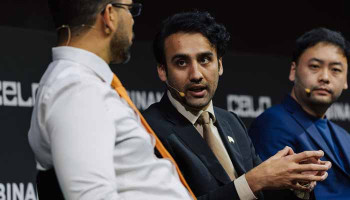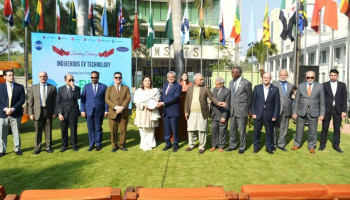
Calling countries to resist the ultra-rich’s influence over tax policy, the charity Oxfam claimed that the world’s five wealthiest men have more than doubled their fortune since 2020.
Charity Oxfam presented at the World Economic Forum in Davos last week claimed that the wealth of these five wealthiest men rose from $405 billion in 2020 to $869 billion in 2023; while nearly five billion people across the world have grown poorer during the period under discussion.
It should be noted that despite several crises — including the COVID-19 pandemic — that wreaked havoc across the globe destroying the world’s economy billionaires are $3.3 trillion richer than they were in 2020.
Read more: Top 5 effortless earning apps for 2024
Oxfam International Interim Director Amitabh Behar, while speaking to AFP, said: “We cannot continue with these levels of obscene inequality,” adding that the data showed that “capitalism is at the service of the super-rich”.
Behar predicted that the world will see its first “trillionaire” in nearly a decade.
It should be noted that Oxfam’s annual report on inequality worldwide is traditionally released just before the Davos forum opens.
Raising concerns over the rise in global inequality, Oxfam reported: “Corporate power is used to drive inequality — by squeezing workers and enriching wealthy shareholders, dodging taxes and privatising the state.”
The charity accused corporations of driving “inequality by undertaking a sustained and highly effective war on taxation”, with far-reaching consequences.
It further stated that handed power over to monopolies, allowing corporations to influence the wages people are paid, the price of food and which medicines individuals can access.
Read more: How much did Apple's CEO Tim Cook earn in 2023?
“Around the world, members of the private sector have relentlessly pushed for lower rates, more loopholes, less transparency and other measures aimed at enabling companies to contribute as little as possible to public coffers,” Oxfam added.
The report further highlighted that corporate taxes have significantly dropped in Organisation for Economic Co-operation and Development (OECD) countries from 48% in 1980 to 23.1% in 2022.
To address the imbalance, Oxfam called for a wealth tax on the world’s millionaires and billionaires that it says could bring in $1.8 trillion each year. The non-governmental organisation also called for a cap on CEO pay and the break-up of private monopolies.
















